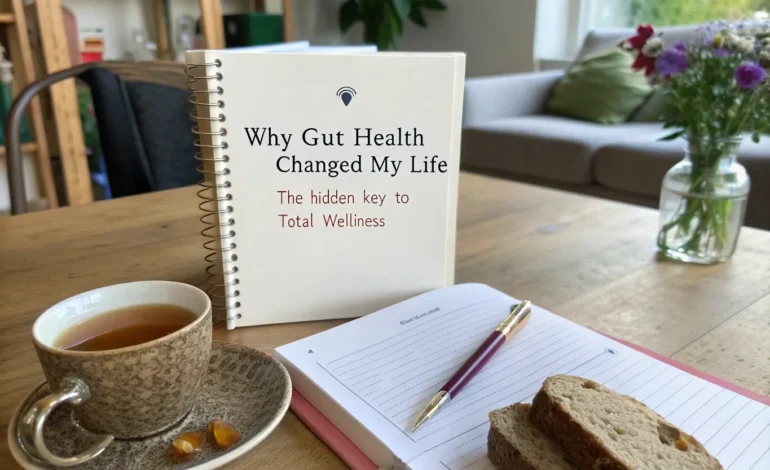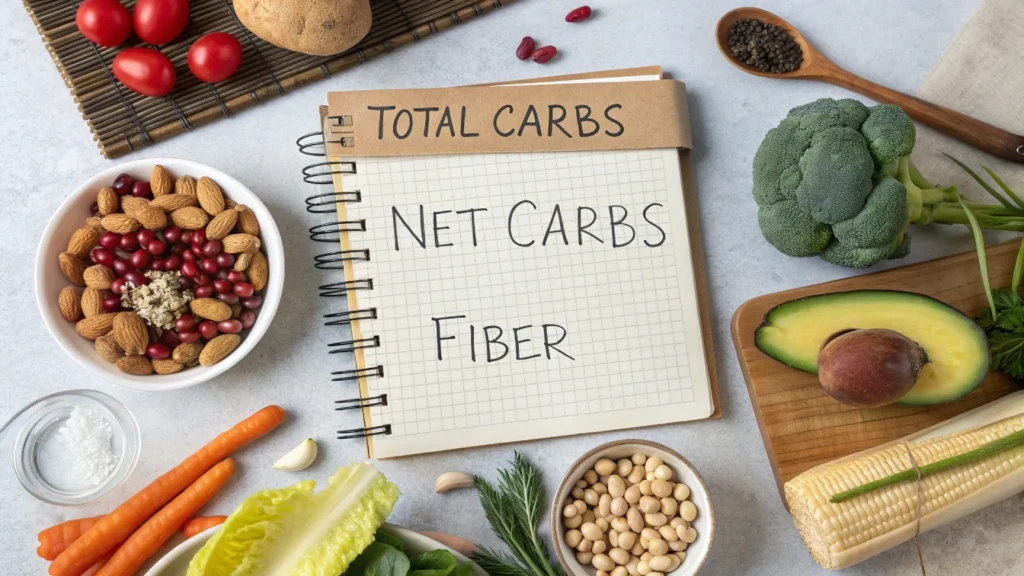What Are Net Carbs—And Should You Really Count Them?
Discover how gut health impacts everything from digestion and mood to immunity. Learn what harms your gut, how to heal it naturally with diet and lifestyle, and the daily habits

I never really understood how important gut health was until I started facing a cascade of problems — fatigue, brain fog, digestive discomfort, and even mood swings. What started as minor annoyances became a daily battle, and I finally realized my gut was at the root of it all, even influencing how my body processed different foods and their net carbs. Fixing it wasn’t easy, but once I committed, the improvements were life-changing.
he gut isn’t just about digestion — it’s the powerhouse influencing everything from immunity to mental health. A balanced gut microbiome, made up of trillions of bacteria, is essential for keeping your whole body running smoothly. But modern life throws so many curveballs at our gut health.
How Do Medications Like Antibiotics Harm Your Gut?
One major culprit is medications, especially antibiotics. While they save lives by killing harmful bacteria, they’re also notorious for wiping out good bacteria in your gut. This disruption can even affect how your body metabolizes fiber and manages net carbs, adding another layer of digestive imbalance. This imbalance, called dysbiosis, can cause diarrhea, bloating, and increase susceptibility to infections. Other common medications that can harm your gut include NSAIDs (like ibuprofen), proton pump inhibitors (used for acid reflux), and some antidepressants. These can damage the gut lining or alter the bacterial community, sometimes leading to chronic digestive problems.
Knowing that, I became very careful with medications and always asked my doctor about gut-friendly alternatives or probiotics to help protect my digestive system during treatment.
Which Foods Support a Healthy Gut Microbiome?
Diet, of course, is a cornerstone of gut health. I learned that some foods feed the good bacteria and help repair the gut lining, while others fuel the bad guys and cause inflammation. Fermented foods like yogurt, kefir, sauerkraut, kimchi, and miso are natural probiotics — they introduce beneficial bacteria and improve gut diversity. High-fiber foods like fruits, vegetables, legumes, and whole grains act as prebiotics, feeding the good bacteria already in your gut.

What Foods and Drinks Should You Avoid for Gut Health?
On the flip side, processed foods high in sugar, refined carbs, and unhealthy fats can harm your gut flora and promote inflammation. Artificial sweeteners and excess alcohol are also gut disruptors. For drinks, I found that green tea and kombucha, both rich in antioxidants and probiotics, helped calm my gut and reduce inflammation. Sugary sodas and excessive caffeine, however, aggravated symptoms and worsened acid reflux.
Speaking of alcohol, I had to face the truth: alcohol does harm the gut. It can damage the gut lining, leading to increased intestinal permeability (sometimes called “leaky gut”), allowing toxins and bacteria to enter the bloodstream and trigger systemic inflammation. This not only affects digestion but also contributes to chronic diseases. Moderation or abstaining from alcohol was one of the hardest but most beneficial changes I made.
What Steps Can You Take to Heal Your Gut Naturally?
Treating my gut required a multi-step approach. I started by cutting out processed foods, reducing sugar, and focusing on whole, nutrient-dense meals packed with fiber and fermented products. Hydration was key — I aimed for plenty of water and included bone broth, which contains collagen and amino acids to help heal the gut lining.
I also added a high-quality probiotic supplement with multiple strains to help replenish beneficial bacteria. Prebiotic fibers from foods like onions, garlic, asparagus, and bananas became staples. Managing stress through mindfulness and getting enough sleep were crucial too, since chronic stress negatively impacts the gut environment.
For persistent issues, some doctors recommend specialized treatments like low-FODMAP diets for irritable bowel syndrome or even fecal microbiota transplants in severe cases. But for most people, consistent lifestyle changes can restore gut balance over time.
Ultimately, the journey taught me that gut health is foundational to well-being. It affects everything from energy and mood to immune defenses and chronic disease risk. Healing your gut isn’t about quick fixes — it’s a commitment to nourishing your body, protecting it from harm, and supporting its natural balance every day.
What Does a Daily Gut Health Routine Look Like?
Here’s a look at my personal daily gut health routine that’s helped me maintain balance and vitality:
- Morning: I start with a glass of warm water with lemon to gently stimulate digestion. Breakfast includes probiotic-rich yogurt topped with fresh berries and a sprinkle of chia seeds for fiber.
- Midday: I aim for a colorful salad loaded with leafy greens, roasted veggies, avocado, and fermented sauerkraut or kimchi on the side. I drink green tea between meals to stay hydrated and support gut health.
- Afternoon Snack: A banana or handful of nuts to fuel my gut bacteria with prebiotic fiber.
- Evening: Dinner is usually grilled salmon or chicken with steamed asparagus and sweet potatoes, followed by a small serving of kefir or miso soup.
- Hydration: Throughout the day, I sip water and occasionally kombucha, avoiding sodas and minimizing caffeine.
- Lifestyle: I practice meditation for 10 minutes daily to manage stress, walk or exercise regularly, and aim for 7-8 hours of sleep nightly.
How Can You Start Improving Your Gut Health Today?
If you haven’t paid attention to your gut before, I encourage you to start now. Listen to your body, make mindful changes, and don’t be afraid to seek help from a healthcare professional if you need it. Your gut is the foundation of your health — and when it’s thriving, everything else will follow.
If you’re struggling with digestive problems or want to optimize your health, don’t overlook your gut. Make thoughtful food and lifestyle choices, be cautious with medications, and consider working with a healthcare professional experienced in gut health. The rewards can be profound — better digestion, sharper mind, stronger immunity, and a healthier life overall.








